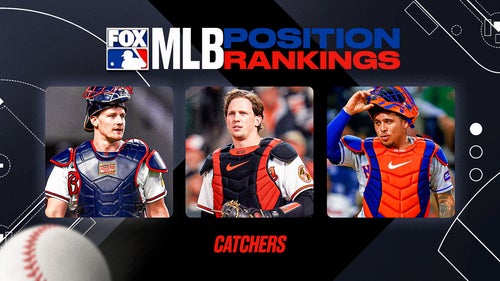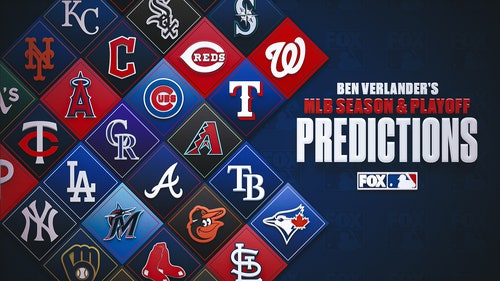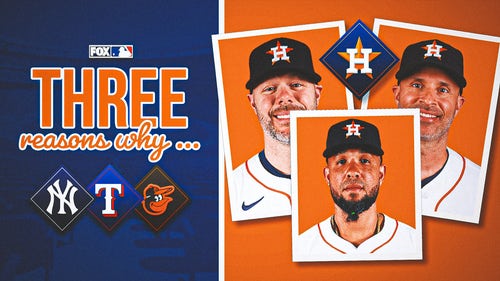





































































































































Astros: Does the Lineup Actually Improve Next Season?
On paper, the Astros should boast a notable offensive attack in 2017 thanks in part to the newest additions.
Between the outfield and a few infield positions, the Astros offense had a couple of rough stretches in the 2016 season. Sure, there are stars at other positions. But you have to pencil in nine players per game into the lineup. It just felt like that wasn’t enough at times.
So Houston responded by acquiring Brian McCann, Josh Reddick, and Carlos Beltran to help bolster the lineup. But this question must be asked: does the offense actually improve?
At first glance, that’s an easy yes. I’m sure many fine individuals would take the trio signed this offseason over Carlos Gomez, Colby Rasmus, and Jason Castro from last season. However, let’s dig deeper. We must look at the actual evidence instead of going by the names.
More from Climbing Tal's Hill
First item on the agenda is to determine if more runs would actually be created by the replacement trio. After all, the goal of an offense is to create runs.
Total runs created in 2016 from Gomez, Rasmus, and Castro: 126 runs created
Total runs created in 2016 from Reddick, McCann, and Beltran: 205 runs created
Based on the total runs created in 2016, it is clear that Houston’s offense should improve in 2017. In case you were wondering, Gomez contributed 23 of those runs last season for the Texas Rangers. So that 126 drops down to 103 if you want to count exclusively for the Astros.
You can even break it down by game to see that the Reddick/McCann/Beltran trio would clearly be a step up from Gomez/Rasmus/Castro based on last year’s figures:
Reddick RC/G: 5.0
McCann RC/G: 4.6
Beltran RC/G: 5.8
Gomez RC/G: 3.8 overall; 2.7 exclusively with HOU
Rasmus RC/G: 3.5
Castro RC/G: 3.8
As one can tell, the Astros offense should be better at creating runs from at least three spots. Especially their outfield.
Next, I would like to examine the difference of OPS and oWAR between the old trio and the new trio. As I’m sure you all know, OPS is a much better indicator than batting average or counting statistics. And oWAR is a valuable indicator as it is basically WAR minus the fielding component.
Reddick OPS & oWAR: .749/2.0
McCann OPS & oWAR: .748/1.6
Beltran OPS & oWAR: .850/2.6
Gomez OPS & oWAR: .682/0.7
Rasmus OPS & oWAR: .641/0.1
Castro OPS & oWAR: .684/1.2
Once again, the stats point to the Astros offense, on paper at the least, improves over last season’s edition. While none of the new additions will be superstars for Houston, they should provide the offense with more options.
For most game days in 2017, Houston should not have a glaring hole in the lineup. Sure, there will be some games when you will see someone like Jake Marisnick pencilled in the outfield. The glove-first, bat-second kind of players. Unlike the past two seasons though, that should be a less often occurrence.
Overall, this Astros offense will win plenty of games. This unit could potentially be one of the best next season. And on paper today, this a better offensive group than exactly one year ago.
**Statistics courtesy of Baseball Reference**

Ranking the 10 best catchers in MLB 2024

2024 MLB predictions by Ben Verlander: Standings, playoffs, World Series

2024 World Series odds: Dodgers, Braves still at the top; Orioles rising

Three reasons why the Astros’ slow start is concerning

Everything to know about FOX Saturday Baseball: Mets vs. Dodgers

Ranking the 10 best closers in MLB 2024

MLB Buy or Sell: Braves fine sans Strider? Trout staying put? Phillies in trouble?


Ranking the 10 best catchers in MLB 2024

2024 MLB predictions by Ben Verlander: Standings, playoffs, World Series

2024 World Series odds: Dodgers, Braves still at the top; Orioles rising

Three reasons why the Astros’ slow start is concerning

Everything to know about FOX Saturday Baseball: Mets vs. Dodgers

Ranking the 10 best closers in MLB 2024

MLB Buy or Sell: Braves fine sans Strider? Trout staying put? Phillies in trouble?
